As I see it, if a city can claim to be the birthplace of Starbucks and Jimi Hendrix, it must be doing something right. That said, Seattle isn’t exactly in the espresso lane regarding high-speed internet options. While the Seattle-Tacoma-Bellevue region rings in as the country’s 15th most populous metro area, it could only muster a spot at 91 among the fastest cities in the US for broadband.
That news arrived with the latest data from the Speed-testing company Ookla, which tracks the top 100 cities in the US and categorizes them based on their median download speeds. According to Ookla’s report covering the first quarter of 2022, Seattle placed in the bottom 10, just ahead of Denver, with a median download speed of 116 megabits per second.
The Ookla report also noted that Seattle’s fastest provider — again, based on median download speed — was Astound Broadband (also known in the area as Wave), a cable internet provider whose average speed was about 145 megabits per second. As we’ve written many times in CNET’s broadband coverage, cable internet connections — though offering fast speeds and decent reliability — aren’t the speediest mode available. That claim belongs to fiber internet. And, while you can get fiber internet service in and around Seattle, each of those providers, including CenturyLink and Ziply Fiber, also supplies internet service via DSL connections, which are far slower than fiber, and less dependable than cable. That brings those average speeds back down to earth — and it also means that there’s a lot to keep track of if you’re shopping for a new internet plan in Seattle.
In any case, whether you’ve relocated to the area or are a long-time Seattleite, you’ve got some options for getting connected. Let’s dive into your choices and explore the best internet service providers in the area.
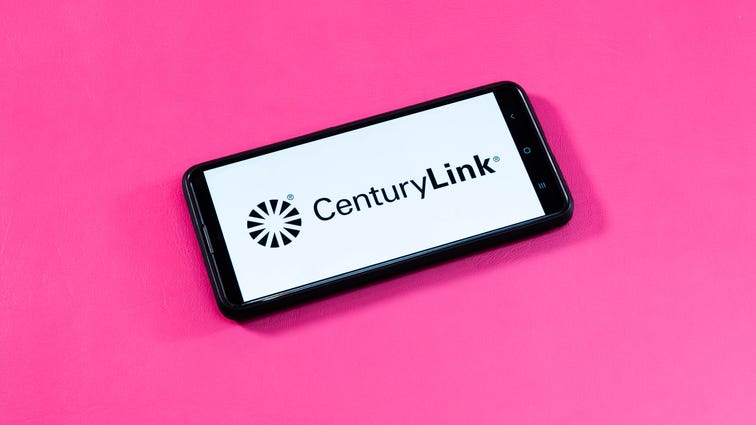
Sarah Tew/CNET
- Price range: $49 to $65 a month
- Speed range: 200 to 940Mbps
- Highlights: No contracts, no data caps, and no equipment rental fee (gigabit plan only)
To be clear, not all CenturyLink service in Seattle is fiber-optic internet service. According to the Federal Communication Commission’s data, you’ll still find DSL connections in many areas across the city, perhaps as much as 75% (though, admittedly, those December 2020 numbers aren’t exactly current). But if you can get CenturyLink’s fiber service you’ll find a quality offering that features unlimited data and doesn’t ask you to sign a term agreement to get the lowest price. It’s also called Quantum Fiber in some, but not all, areas — don’t ask, it’s just rebranding.
Expect especially good value with the gigabit plan, which offers matching download and upload speeds of up to 940Mbps for $65 a month. That’s an excellent value that comes out to 7 cents per Mbps, which is strong even by fiber standards. By comparison, cable plans typically run between 20 and 50 cents per Mbps, which goes even higher once the promo price wears off after a year. On top of that, your modem rental is included with CenturyLink’s gigabit plan, which costs an additional $15 a month if you choose the 200Mbps option.
Most of CenturyLink’s fiber service will be in and around Seattle, but some people will find availability as far south as Bonney Lake, Gig Harbor and Orting. You can also find it east of Seattle in Issaquah or west of the city in Poulsbo, just off Liberty Bay.
Read our CenturyLink home internet review.
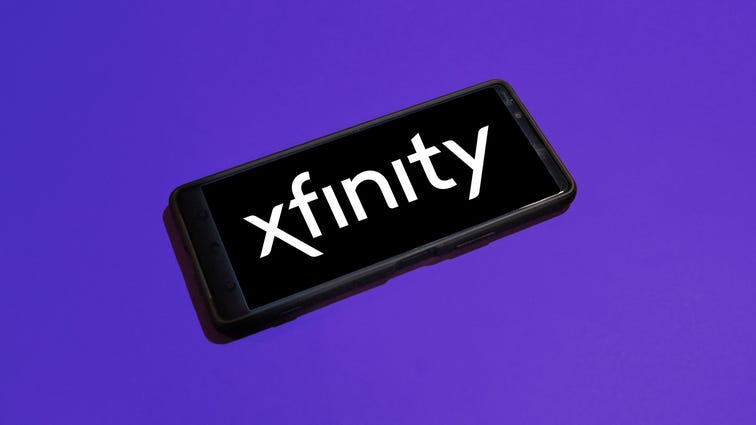
Sarah Tew/CNET
- Price range: $20 to $300 a month
- Speed range: 50 to 6,000Mbps
- Highlights: A wide range of plans to help you customize for your needs, good customer satisfaction numbers
- Special offers: Bundle discounts with Xfinity Mobile
You’ll have to look far and wide before finding a provider that offers as many options as Comcast’s cable internet service, Xfinity. Seven different tiers help you find the right fit for your household, from one of the area’s cheapest internet plans (50Mbps for $20 a month) to the region’s fastest residential offering (6,000Mbps for $300 a month).
Xfinity’s Gigabit Pro is notable not just for its superior speed but also because it’s Xfinity’s only fiber-to-the-home product. That means you’ll get symmetrical download and upload speed, whereas all other Xfinity plans will have a max upload speed of 10 to 35Mbps. That said, Gigabit Pro is limited to select addresses, so there’s a good chance it isn’t available at yours. It isn’t exactly cheap, either — it’s one of the most expensive broadband plans out there. You’ll get a lot, but you’ll pay a lot, too.
Xfinity also does well in customer satisfaction surveys. It scored two points above the industry average in the most recent American Customer Satisfaction Index report and finished above average in all four regions of the J.D. Power study for 2021.
So why isn’t it best overall? Cable, contracts and caps. Cable internet, while reliable, doesn’t perform as well as fiber internet, with upload speeds limited to 35Mbps. Also, to get the best promo rates with Xfinity, you’ll have to sign a contract (usually one year, but Gigabit Pro requires a two-year commitment). Finally, all Xfinity plans have a monthly data cap of 1.2 terabytes. You can sign up for unlimited data, but that’ll add extra fees to your monthly bill.
Read our Xfinity home internet review.
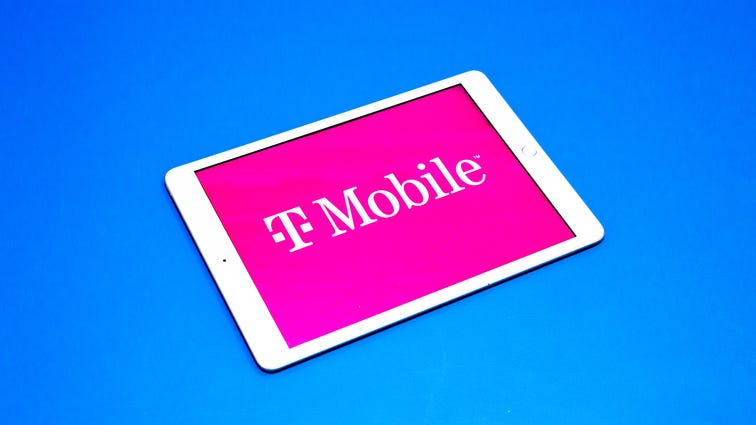
Sarah Tew/CNET
- Price range: $50 a month ($30 for eligible T-Mobile Magenta Max customers)
- Speed range: 33 to 182Mbps
- Highlights: Unlimited data, equipment included, no contracts, no additional fees
- Special offers: Price Lock guarantee, 15-day Test Drive, free Paramount Plus for 12 months, 50% off YouTube TV for a year (for eligible Magenta Max customers)
T-Mobile has been aggressively campaigning for its home internet product. Exhibit A: Its recent “Internet Freedom” push includes the tagline, “Free yourself from internet BS.” T-Mobile Home Internet is appealingly simple, as one monthly fee covers all your equipment needs and you won’t have to worry about term agreements, data caps or added fees. Customers seem to be responding well, too: T-Mobile Home Internet was second only to Verizon Fios in the ACSI survey of Americans’ satisfaction with their ISPs.
Additionally, T-Mobile offers a $20 discount for eligible Magenta Max customers. All new customers, no matter if they’re also wireless customers or not, can try the service for 15 days without penalty and with a full money-back guarantee.
The biggest catch with T-Mobile Home Internet is that it still isn’t widely available. While the Seattle-Tacoma-Bellevue market is among the 40 million households that can get it, you’ll still need to determine if it’s available at your address. For example, I can get T-Mobile 5G cell service at home, but my address still isn’t eligible for T-Mobile Home Internet. To follow up on your household’s availability, plug in your address (T-Mobile customers can also use their mobile phone number) on the T-Mobile Home Internet site.
Read our T-Mobile Home Internet overview.
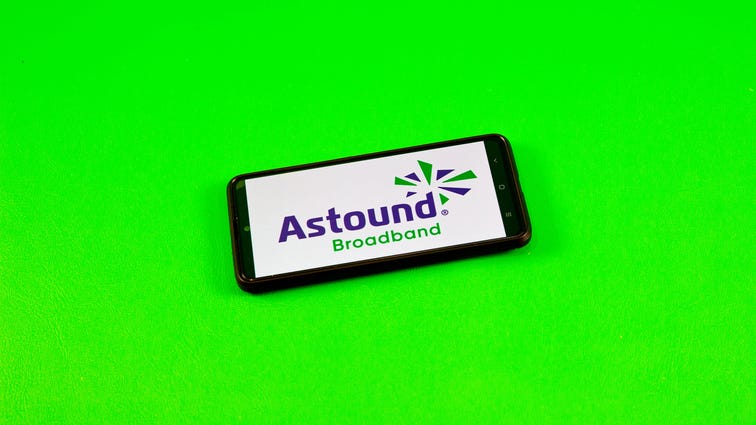
Sarah Tew/CNET
- Price range: $20 to $50 a month
- Speed range: 100 to 940Mbps
- Highlights: Ultra competitive promo rates, no contract requirements
This cable internet provider is tough to beat regarding competitive starting rates. Case in point: Its cheapest plan matches the most affordable Xfinity tier at $20 but doubles its speed (Xfinity’s $20 plan features 50Mbps download speed, while Astound gets your speeds up to 100Mbps). That means you’re getting a decent value of 20 cents per Mbps compared to Xfinity’s higher cost per Mbps of 40 cents.
You can emphasize that value further when you look at Astound’s gigabit plan, which offers 940Mbps for $50 per month. That comes out to a stellar 5 cents per Mbps. That’s the best value you’ll find from any plan, no matter the provider, throughout the Seattle area.
But (and you had to feel it coming), there’s a caveat: Astound Broadband features some of the highest one-year price increases among ISPs. Per the company’s rate card, that $20 plan could jump up as high as $70 a month. While a spokesperson for the company told CNET that most customers would not see a full increase to the standard retail rate, I think you need to be aware of what might await you after the rosy returns of the first 12 months.
Read our Astound Broadband review.
Overview of Seattle internet providers
| Astound Broadband/Wave | CenturyLink | Google Fiber Webpass | T-Mobile Home Internet | Xfinity | |
|---|---|---|---|---|---|
| Internet technology | Cable | DSL/fiber | Fixed wireless | Fixed wireless | Cable |
| Monthly price range | $20 to $50 | $49 to $65 | $63 to $70 | $50 | $20 to $300 |
| Speed range | 100 to 940Mbps | 20 to 940Mbps | 1,000Mbps | 33 to 182Mbps | 50 to 6,000Mbps |
| Monthly equipment costs | $12 (skippable) | $15 (skippable) | None | None | $14 (skippable) |
| Data cap | 400GB to Unlimited | None | None | None | 1.2TB |
| Contract | None | None | None | None | 1 year |
| CNET review score | N/A | 6.7 | 7.4 | N/A | 7 |
Which other internet providers offer service in Seattle?
The city set on the Puget Sound has more ISPs seeking your business than the four we highlighted above. Here are some of the other internet providers in Seattle.
- Google Fiber Webpass: Don’t be confused by the fiber in the name. This is a fixed-wireless option from Google Fiber that’s focused solely on apartment buildings. Even though it’s not fiber internet, it’s still plenty zippy: It offers symmetrical gigabit speeds for $70 a month (or an average of $63 a month if you sign up for the yearly plan, but it requires a full, $750 upfront payment). Webpass also features free installation, unlimited data and no equipment fees. If your building cannot support the full gig speeds, Webpass will reduce the pricing. Google Fiber Webpass is pretty much centered within Seattle city limits, including the neighborhoods of Belltown, Capitol Hill, First Hill, Fremont, Queen Anne and Uptown.
- Satellite internet: This always feels a bit like cheating, but it must be said that no matter which city or area in which you live in the US, this mode of internet connectivity is always an option. Is it a great option for Seattle residents? If you live in the city, no. You’ll have much faster and cheaper choices available to you. Even areas south of Tacoma or north of Everett should have some viable alternatives, but if you do find yourself in a rural town with limited options, then you might consider it. HughesNet and Viasat will be your top picks, although both require you to commit to a two-year contract. A more intriguing possibility is Starlink, which is not a viable option at the moment — the Starlink availability map notes the Seattle area is on the waitlist until 2023. Once it arrives, it promises faster download speeds and no data cap or term agreement.
- Verizon 5G Home Internet: Why choose Verizon’s fixed wireless home internet product over T-Mobile Home Internet? On the plus side, it has a much faster average download speed (300Mbps) than T-Mobile and, if you’re among eligible Verizon Wireless subscribers, it’s cheaper too, with the same “all-in” approach where equipment, installation and fees are all covered in your flat, monthly rate. Where it falls short of T-Mobile is availability. Its exclusive use of its 5G network — T-Mobile uses its 4G LTE network in addition to 5G, to more quickly boost its territory — means it doesn’t quite hit the same reach.
- Ziply Fiber: Despite being relatively new to the game — it launched services in the middle of 2020 — Ziply Fiber is a viable option if you’re eligible for its fiber internet, which boasts unlimited data and no long-term contract requirements. However, despite its name, some of its network is of the much slower DSL type, so definitely make sure your address can access its fiber plans before you sign up. Also of note, Ziply Fiber is also rolling out several multi-gigabit plans as well. Confirmed cities where multi-gig plans are currently available include Bellevue, Kirkland and Redmond.

Scenic view of the Space Needle and the Seattle skyline with Mount Rainier in the distance.
Donald Miralle/Getty Images
Is there more to know about home internet in Seattle?
As any good shopper knows, you have to look beyond just the brand name to know if you’re getting a good deal. The same is true when evaluating internet providers in Seattle. You need to go further than just our overview to get more specific details about the available internet plans in the Emerald City. So let’s take a deeper dive into both the cheapest internet plans in the area, as well as the fastest internet plans you can get in the Seattle-Tacoma-Bellevue region.
Seattle home internet pricing
When you consider the starting prices of all ISPs (which takes into account the promo prices, not the regular rates that take hold after a year), the average price for internet service in Seattle is just under $42 a month. That’s about the middle of the pack among the cities CNET has examined up to this point. That includes Brooklyn ($36 a month), Los Angeles ($38 a month), San Francisco ($40 a month), New York ($41 per month), Austin ($43 a month), Houston ($45 per month) and, all at $50 a month, Atlanta, Charlotte, Chicago, Las Vegas, Orlando, San Diego and St. Louis.
But digging in a bit on specific options, you’ll find the lowest starting price of $20 a month shared by three providers: Astound Broadband, Xfinity and Ziply Fiber. Both Xfinity and Ziply Fiber feature 50Mbps download speeds at that price point but Astound Broadband doubles that to 100Mbps. However, it does have a data cap (400GB) that is less than half of Xfinity’s data cap (1.2TB). Ziply Fiber, on the other hand, features unlimited data. So, depending on your household’s usage and needs, you have a few elements to consider.
Also, whenever talking about cheap internet, we should always mention there are additional, low-income internet options. Such is the case in Seattle. All providers we’ve mentioned participate in the FCC’s Affordable Connectivity Program, which gives a $30 a month discount to eligible low-income households for high-speed internet. You can use the ACP towards any internet plan (not just the cheapest ones) from participating providers. Additionally, multiple providers joined forces with the White House on its plans to address the digital divide and will make available plans of at least 100Mbps that customers would essentially get for free once joined with the ACP discount.
Cheap internet plans in Seattle
| Provider | Starting monthly price | Standard monthly price | Max download speed | Monthly equipment fee | Data cap |
|---|---|---|---|---|---|
| Ziply Fiber 50/50 | $20 | $40 | 50Mbps | $10 | None |
| Xfinity Connect | $20 | $50 | 50Mbps | $14 (skippable) | 1.2TB |
| Astound Broadband/Wave | $20 | $70 | 100Mbps | $12 (skippable) | 400GB |
| HughesNet | $45 | $65 | 25Mbps | $15 or $450 one-time purchase | 2 years |
| CenturyLink/Quantum Fiber | $49 | $49 | 200Mbps | $15 (skippable) | None |
| T-Mobile Home Internet | $50 | $50 | 182Mbps | None | None |
| Verizon 5G Home Internet | $50 | $50 | 300Mbps | None | None |
| Viasat | $50 | $70 | 12Mbps | $13 or $299 one-time purchase | 2 years |
| Google Fiber Webpass | $70 ($63 with year commitment) | $70 ($63 with year commitment) | 1,000Mbps | None | None |
Internet speeds in Seattle
As I mentioned near the start of this article, Seattle isn’t exactly lighting things up on the dial when it comes to average download speeds. That said, you can find plenty of options if you feel the need for extreme speed. The main caveat is that some of the fastest plans in the area aren’t widely available throughout the Seattle-Tacoma-Bellevue region. But some of our friends in the Bellevue area, for example, should have access to some of Ziply Fiber’s fastest, multi-gig plans. While select addresses throughout Seattle may be able to access Comcast’s Gigabit Pro plan, which is the absolute fastest in the area (at least for the moment) with symmetrical speeds of 6,000Mbps.
Fastest internet plans in Seattle
| Provider | Starting monthly price | Max download speed | Max upload speed | Data cap | Contract |
|---|---|---|---|---|---|
| Xfinity Gigabit Pro | $300 | 6,000Mbps | 6,000Mbps | 1.2TB | 2 years |
| Ziply Fiber 5 Gig | $300 | 5,000Mbps | 5,000Mbps | None | None |
| Ziply Fiber 2 Gig | $120 | 2,000Mbps | 2,000Mbps | None | None |
| Xfinity Gigabit | $80 | 1,200Mbps | 35Mbps | 1.2TB | 1 year |
| Ziply Fiber Gig | $60 | 1,000Mbps | 1,000Mbps | None | None |
| Google Fiber Webpass | $70 ($63 with year commitment) | 1,000Mbps | 1,000Mbps | None | None |
| CenturyLink/Quantum Fiber | $65 | 940Mbps | 940Mbps | None | None |
| Astound Broadband/Wave | $50 | 940Mbps | 10Mbps | None | None |
What’s the bottom line on Seattle internet?
If you’ve been keeping up on CNET’s coverage of the best internet providers across the country — and I certainly hope you have — you may have noticed there are fewer options in Seattle than you find in other big US cities. On the other hand, Seattle can brag that it’s got both more cheap internet options than most towns, and more multi-gig providers too. They’re kinda spread out throughout the area, but they’re there. Xfinity’s seven different cable internet plans are the most widely available in Seattle but Astound Broadband’s three cable internet tiers are cheaper and don’t require you to sign a contract to get the lowest price. But as we always say, if you’re serviceable for fiber internet — and in Seattle that includes CenturyLink, Ziply Fiber or, in rarer cases, Xfinity’s Gigabit Pro plan — that should be your top option.
Best internet providers in Seattle FAQs
What’s the cheapest internet in Seattle?
On the surface, it’s a flat-out tie between Astound Broadband, Xfinity and Ziply Fiber. Each provider offers a cheap internet plan that starts at $20 a month. However, each offers something different. Both Xfinity and Ziply Fiber feature plans with a maximum download speed of 50Mbps for that $20 monthly fee. Astound Broadband, however, doubles those plans, with a download speed of 100Mbps. So, while each provider has a $20-a-month plan, the Astound option is the cheapest, with a lower cost per Mbps of 20 cents compared to 40 cents for Xfinity and Ziply Fiber.
Can you get fiber internet in Seattle?
Yes. Both CenturyLink and Ziply Fiber offer 100% fiber-optic internet plans featuring symmetrical download and upload speeds. However, neither provider exclusively offers fiber plans. Each also includes DSL connections within their networks, so you must ensure your address is serviceable for the higher-quality fiber internet, not just DSL.
Which provider offers the fastest internet plan in Seattle?
The fastest residential internet plan you can find in Seattle is currently Xfinity’s Gigabit Pro plan, which features 6,000Mbps of symmetrical speed. However, since most of Xfinity’s network is a hybrid fiber-cable connection, customers will need to reach out to Comcast Xfinity (and schedule a site survey) to find out if your address is eligible for the plan. For most residents in the Seattle area, the more accessible multi-gig plan may be Ziply Fiber’s 2-gig or 5-gig tiers.


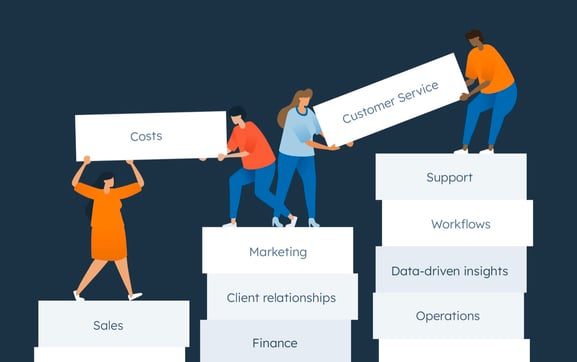


More Stories
iZigg Mobile Review – Does iZigg Mobile Marketing (90210) Really Work?
Internet Fax Services – Do’s and Don’ts
An Introduction To IPTV